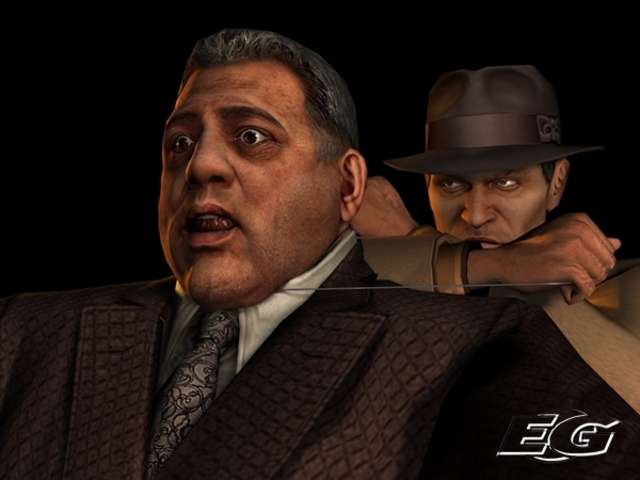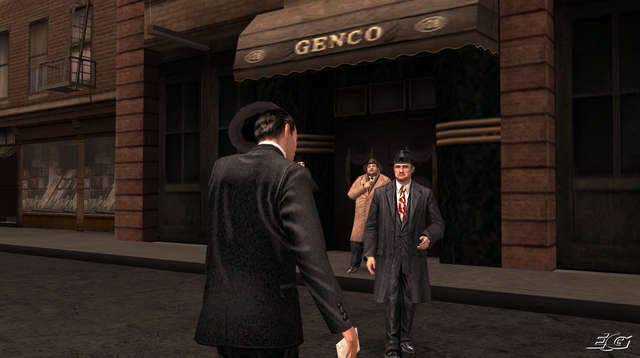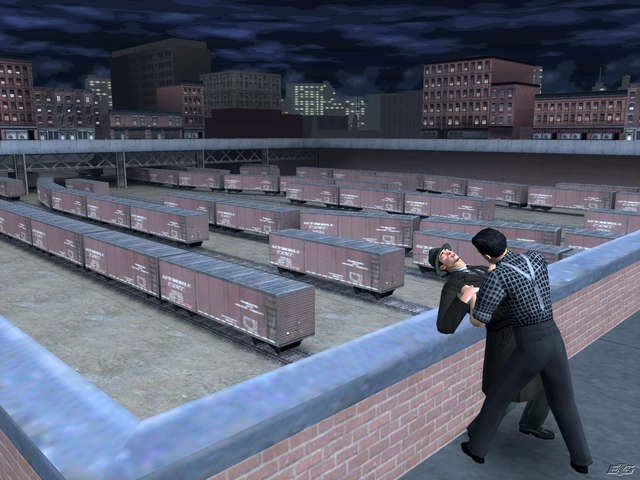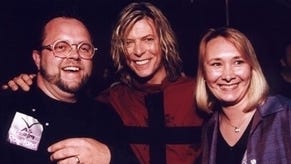The Godfather
First refusal.
Bullets
It doesn't end there, though. To truly wipe the other families off the map, you have to take down each and every one of their strongholds, starting with their warehouses, progressing through to the hubs, and eventually to their compounds. Each one is heavily guarded, starting with road blocks, and stretching through every part of the building, meaning you have to come fully prepared for a huge scrap.
Now, unlike the missions, these enounters are less forgiving in that once you're dead, you have to start over, no matter whether you've taken down one goon or 50, making these arguably the most frustrating, but also the most challenging and rewarding segments of the entire game. Approaching the first goon from afar, targeting them and romping through an army of rivals is actually hugely satisfying, especially once you've bought the three-star weapon upgrades that give you better range.
Perversely, the relatively low-level Warehouse takeovers are actually among the hardest you'll come across, and by the time you've bombed all four compounds you'll probably wish you'd have just done those to begin with. But although these sub-missions are probably the highlight of the game, again, the fun you'll have with them is somewhat tarnished by the inherent repetition. Two or three warehouses would have been fine, but by the eighth you're cursing the padding that's rife within the bulk of the game. After four hubs and four compounds, you'll truly have seen the back of these suicidal enemies.
On top of that, you're also expected to pull off 20 contract hits, which are, again, like mini-missions that task you with driving to a point on the other side of the map to, for example, shoot a guy in the knee, shoulder and then the head for revenge. Some have special conditions that gain you extra money and respect (like performing a strangulation or making it look like a traffic accident by throwing them off a bridge and so on), but like the main missions themselves, they're all over far too quickly, are too easy, and generally involve way too much unecessary (and time consuming) driving.
Parallel Lines

Which brings us onto the driving itself. Whether it was EA's intention or not, one way or another you'll be doing a heck of a lot of driving during The Godfather. It's not that the game's obsessed with cars (most handle the same, and even look broadly similar), but more that the map's actually quite sizeable, and getting from point A to B is going to be impractical otherwise. It's a shame, then, that the handling model is alarmingly basic and not even unrealistic in a particularly fun sense. The game seems to delight in making a huge fuss every time you have a tiny prang with so much as a wooden box, with spectacular litter, glass, wood and spark eruptions that send the frame rate south and eventually just grate. In addition, there's nearly always something to crash into or knock over at every turn, with suicidal pedestrians constantly running across roads, or cars somehow getting in your way, causing you to constantly change cars as yet another one bursts into a spectacular ball of flaming death.
Inevitably comparsions to GTA will be drawn as soon as anyone plays The Godfather, and the immediate conclusion will be that it looks better, but fails in almost every other respect. On a superficial level it adopts the same sandbox approach, but neglects to adopt so many of the the genius ideas inherent in Rockstar's classic series. For a start, there's no branching storyline at any point, and the city itself - although fully accessible from the beginning - is linked by over-long bridge structures and confusing overlapping road networks that make it a real chore to get from one section of the city to the other. In fact you'll waste an enormous amount of time purely because of this.
Another slight disappointment is how under-utilised the star names are during the story mode, with their appearances largely restricted to brief between-mission cut-scenes, rather than fleshing out the missions themselves. Quite how much these Hollywood big names got paid per minute would be an interesting fact. It's especially pertinent, as Rockstar always refuses to publicise which voice actors it uses, yet they all seem to end up doing masses of voice acting regardless. Here, it's fanatastic to see the likes of Brando, Caan and Duval reprise their roles, but you just long for them to play a more meaningful part in the proceedings. For the vast majority of the time you're surrounded by consistently recycled goons, and that's hardly ideal for a game that has such rich characters to draw upon.
Mob rule

The decision to put a generic mobster in the lead role of the game is a good one, though. Predictably, EA borrows the Tiger Woods Gameface system to give you a reasonable degree of (Italian Amercian) customisation, and it works brilliantly, just as it always does. You can't quite make the monster you want to, but it's fun trying it, nevertheless - certainly it's an area that EA dominates, and this game is another fine example of how to personalise the experience in a meaningful way.
Looking back on EA's claims, it's as though the brief for the game was turned on its head halfway down the line. As discussed, there definitely is way too much driving required, which by necessity results in constant car theft, the police are completely generic (and way too easy to escape from - simply driving to any safehouse immediately reduces the star rating to two, for instance), the game has no real memory of your actions (heat and vendetta ratings are extremely easy to reduce), and as a result the talk of there being consequences to your actions is, to borrow a phrase, baloney.
On the postive side, EA has at least borrowed some of the most obvious moments from the movie for some of the missions - notably giving you the chance to plant the horse's head, for one - and there's a particularly cool moment towards the end of the story missions where the game thoughtfully cuts back to the events of the baptism of Michael Corleone's niece. But, like we keep saying, all this does is make you hanker for this kind of quality throughout, not in tiny dribs and drabs.
Despite all the game's mishaps, repetition and missed opportunities, the one main saving grace is that the combat is actually fun enough to nullify the overwhelming repetition. There's something peculiarly satisfying about the mechanics that make it a huge amount of fun in isolation. Approaching one of the epic takedowns armed with the Assassin pistol, and taking down an entire gang one by one is something we never tired of. Being able to wall hug and quickly fire around corners, as well as properly fire back from behind boxes is exceptionally well handled - especially when you're being shot at from all sides and manage to quickly take down a whole load of them in succession.
Gangs of New York

The Godfather's also one of the better-looking games of its type too, with a generally stunning vision of 1950s New York making the game a good exercise in gaming tourism (Xbox shades the PS2 version, but not massively, and the PC version is the best of the bunch visually, but with shonky controls). Sure, the pop-up can be fairly alarming at times, and the stock interiors that EA uses for practically every business in the game feel a bit cheap, but on the whole it's a fine-looking game that pushes the hardware well. Certainly, the lack of load-times is a big plus, and something you'll be grateful for.
Regardless of whether you're a Godfather aficionado, EA at least succeeds in making the game an entertaining one, but that feels like a backhanded compliment when the result deserved to be leagues above merely 'above average'. What we've ended up with is game that offers a decent amount of fun, with great combat, occasionally inspired set-pieces, but sub-par driving and a half-baked story mode with barely enough variety to fill a long evening. Beyond a few hours with the game it's abundantly clear that what's left is so repetitive and so lacking incentive to finish off, it's like you're playing a game that was some way off being finished. Whatever the truth of the matter, it's painfully evident that EA has much to learn from its first steps in this most lucrative of genres, but has done just about enough to paper over some of the cracks. Worth a rental, for sure, but more than that is questionable.


